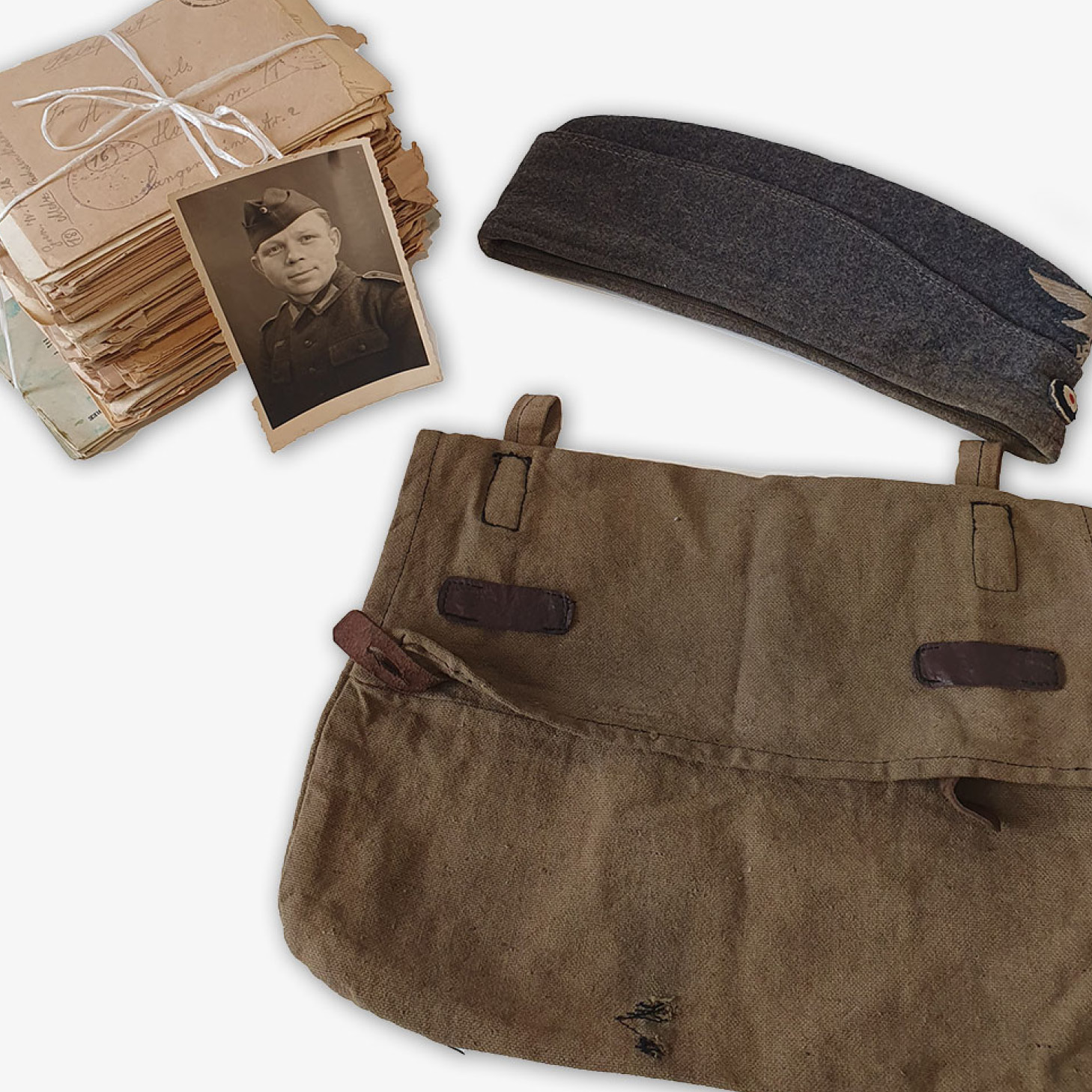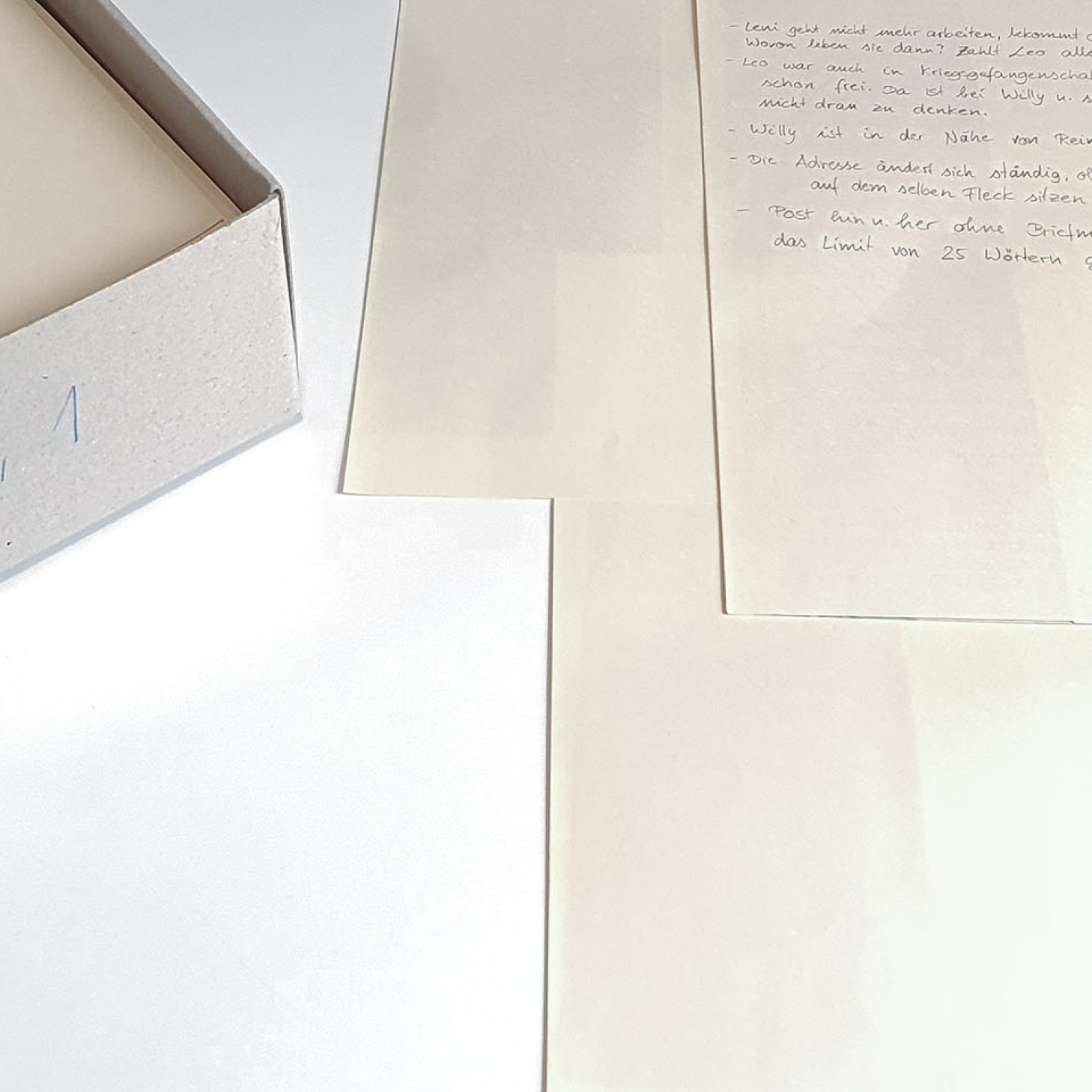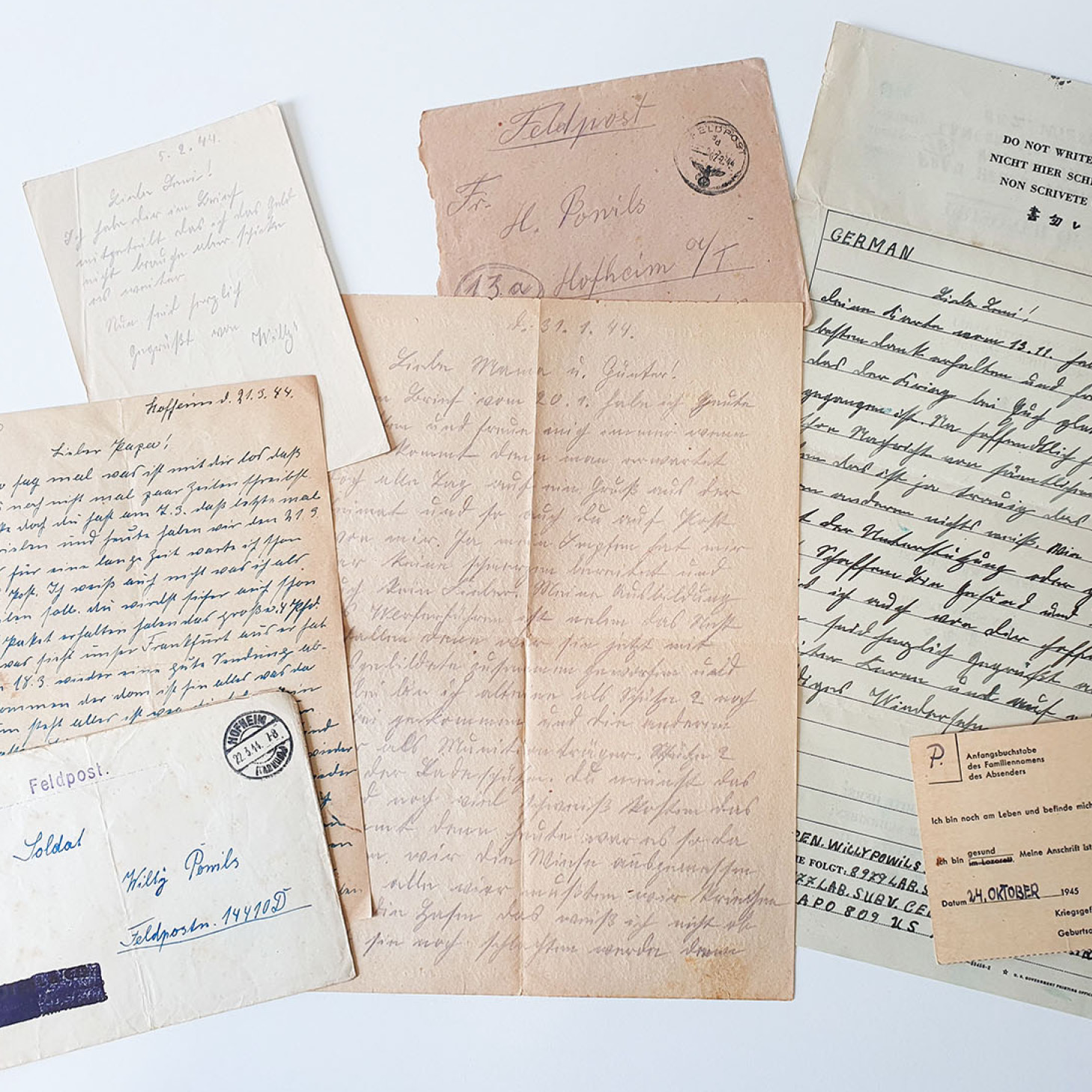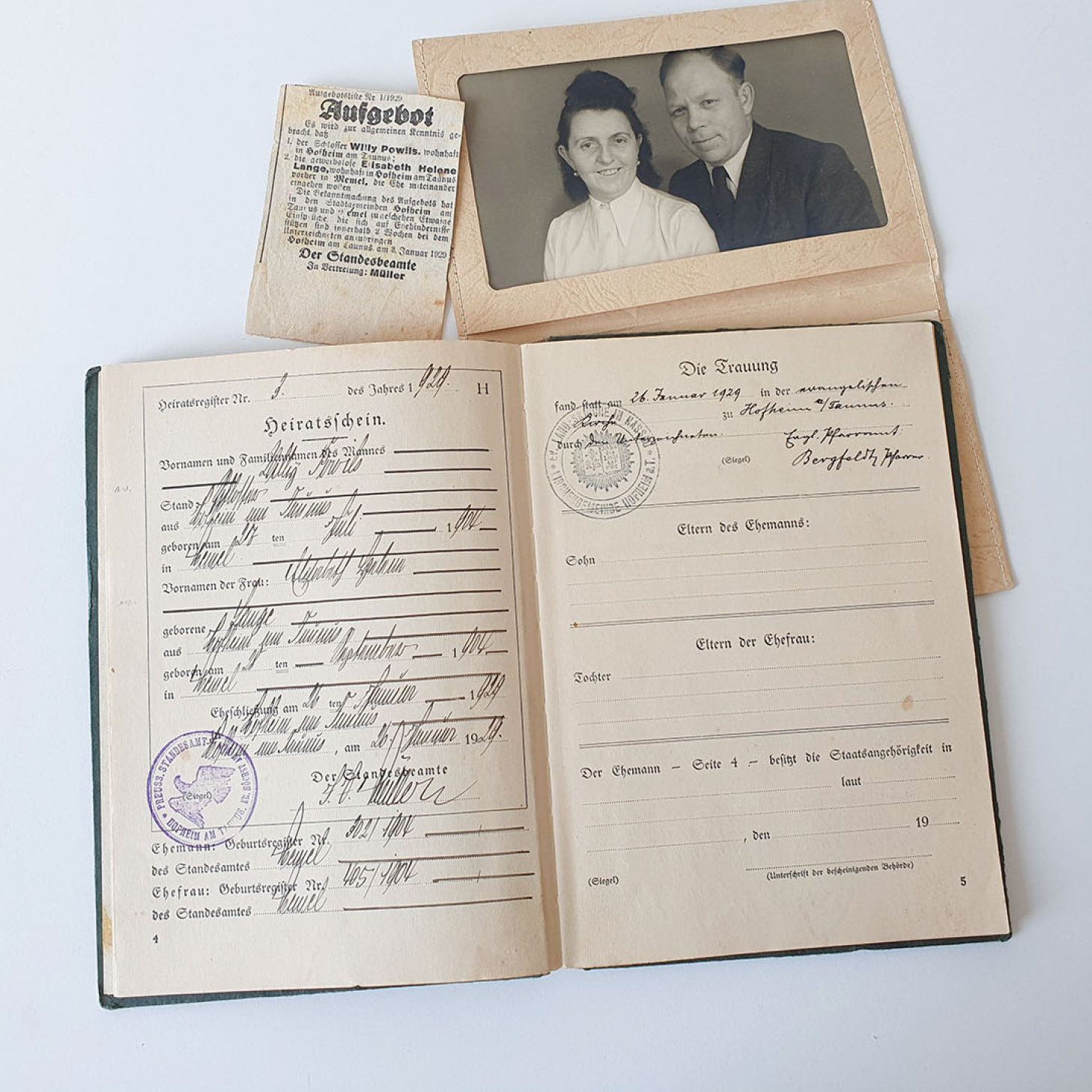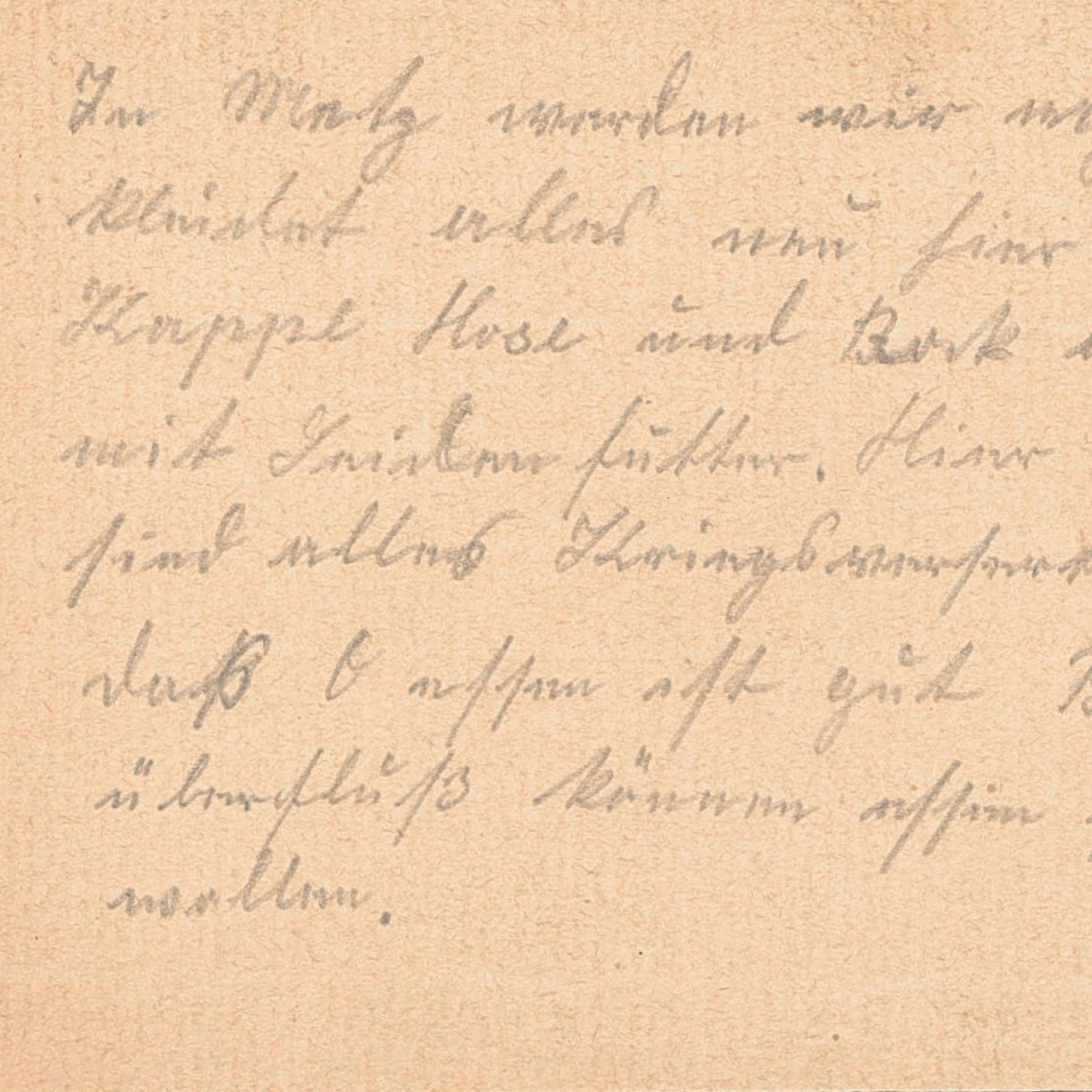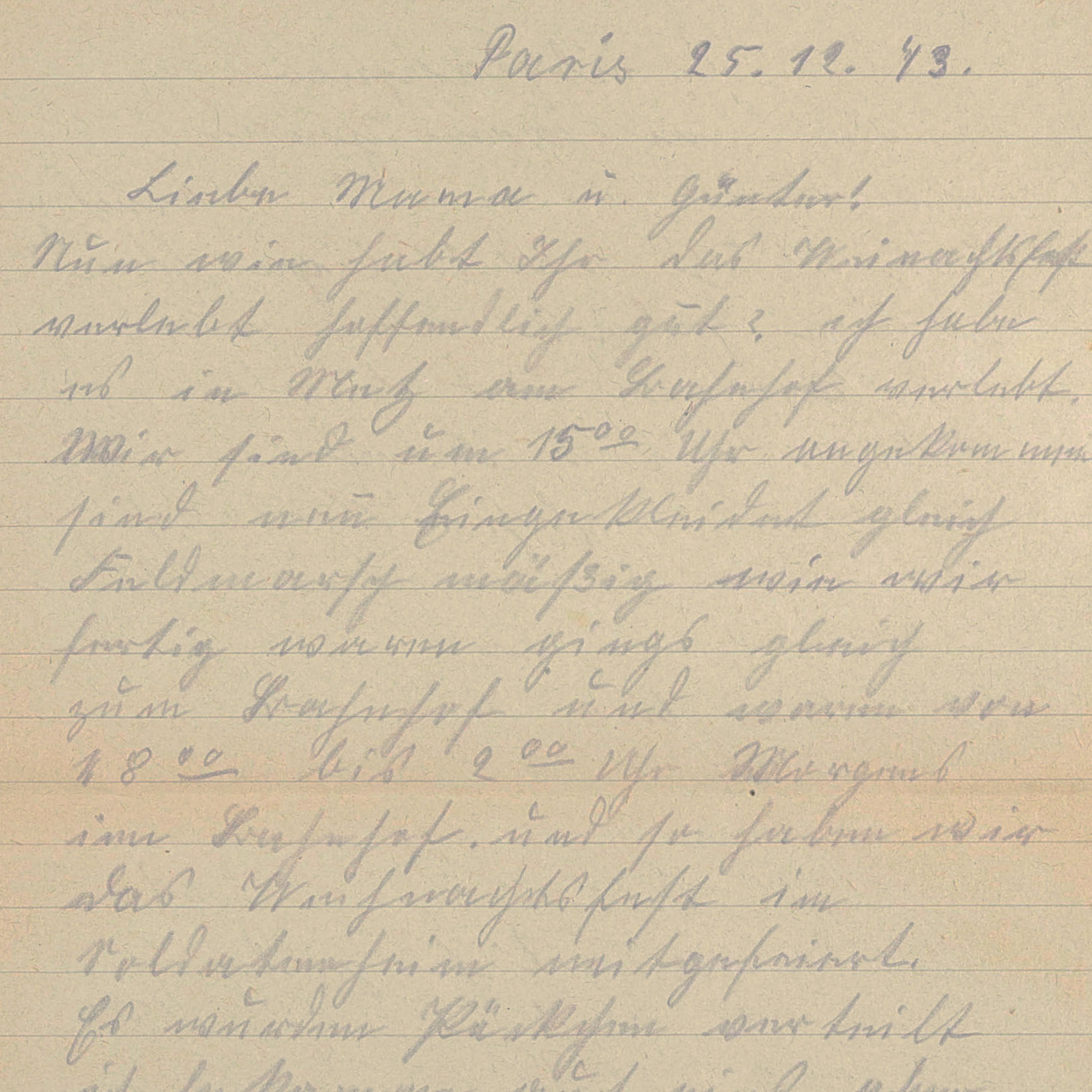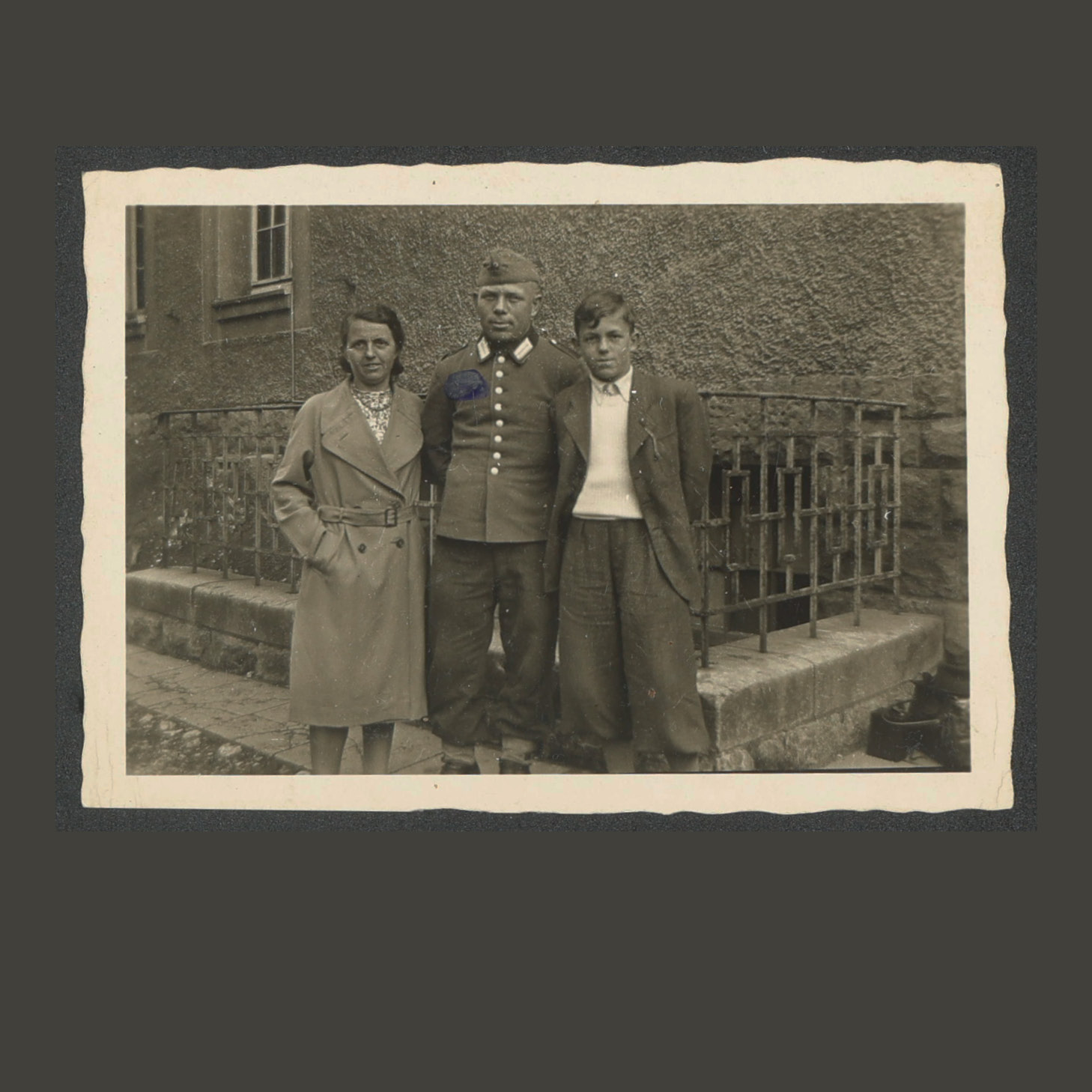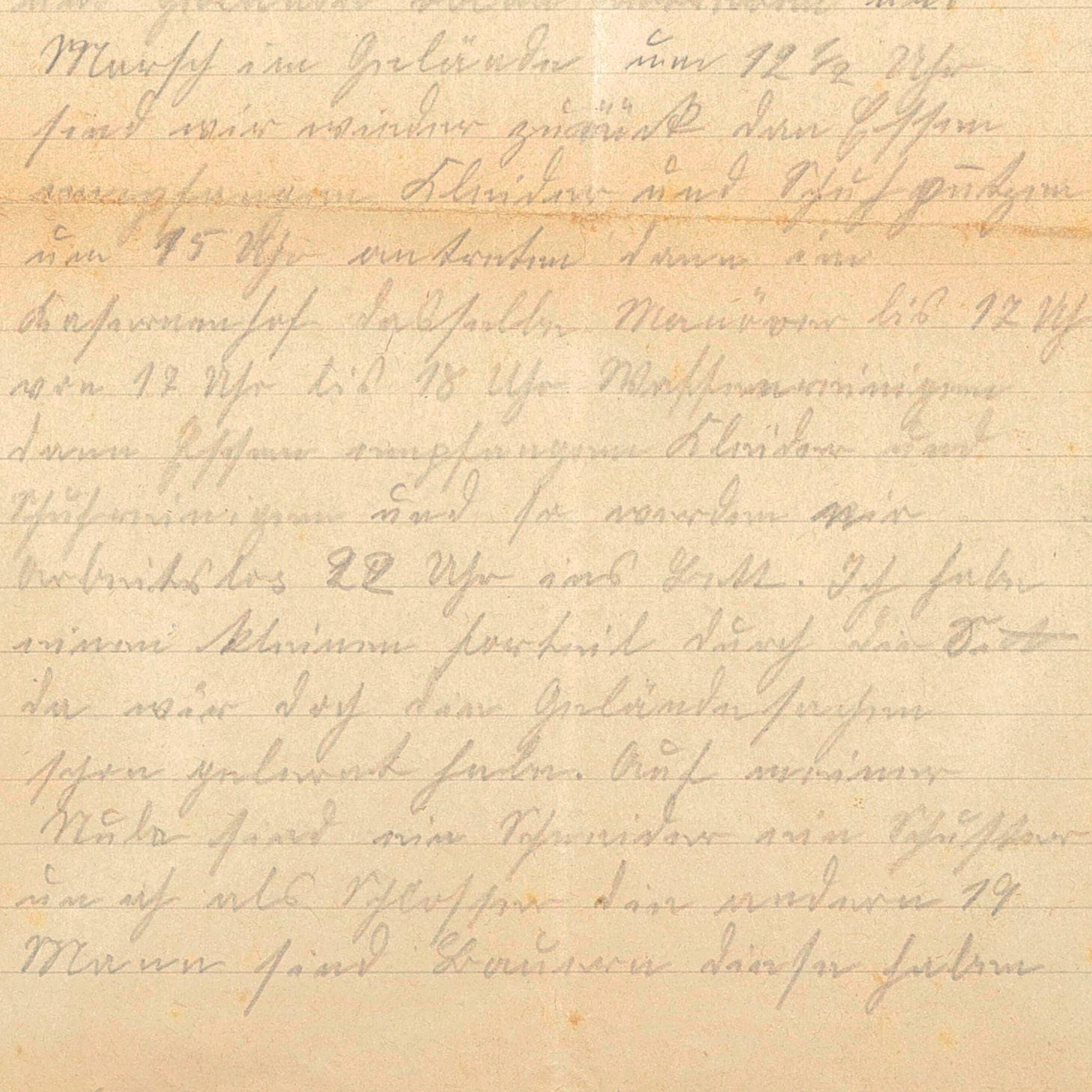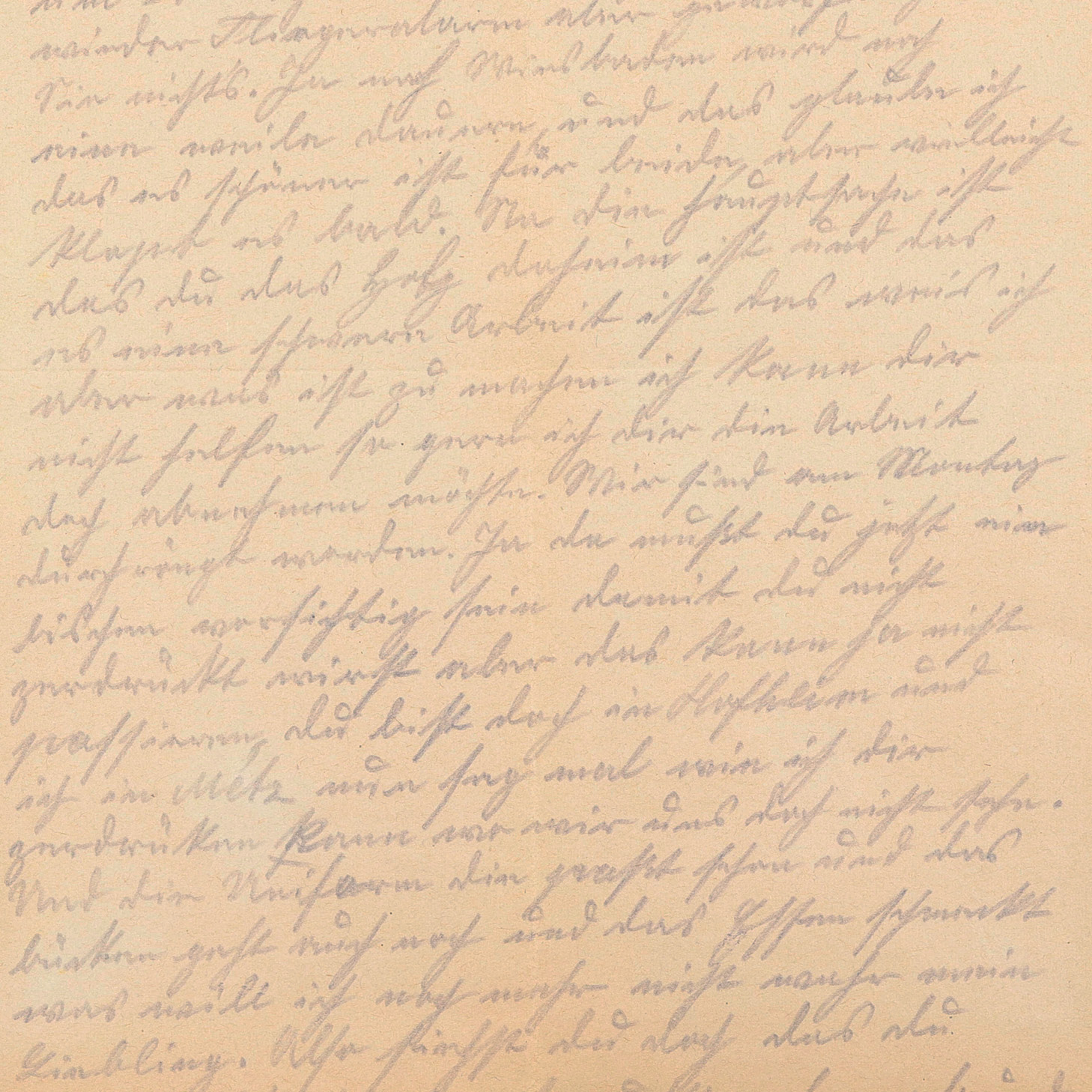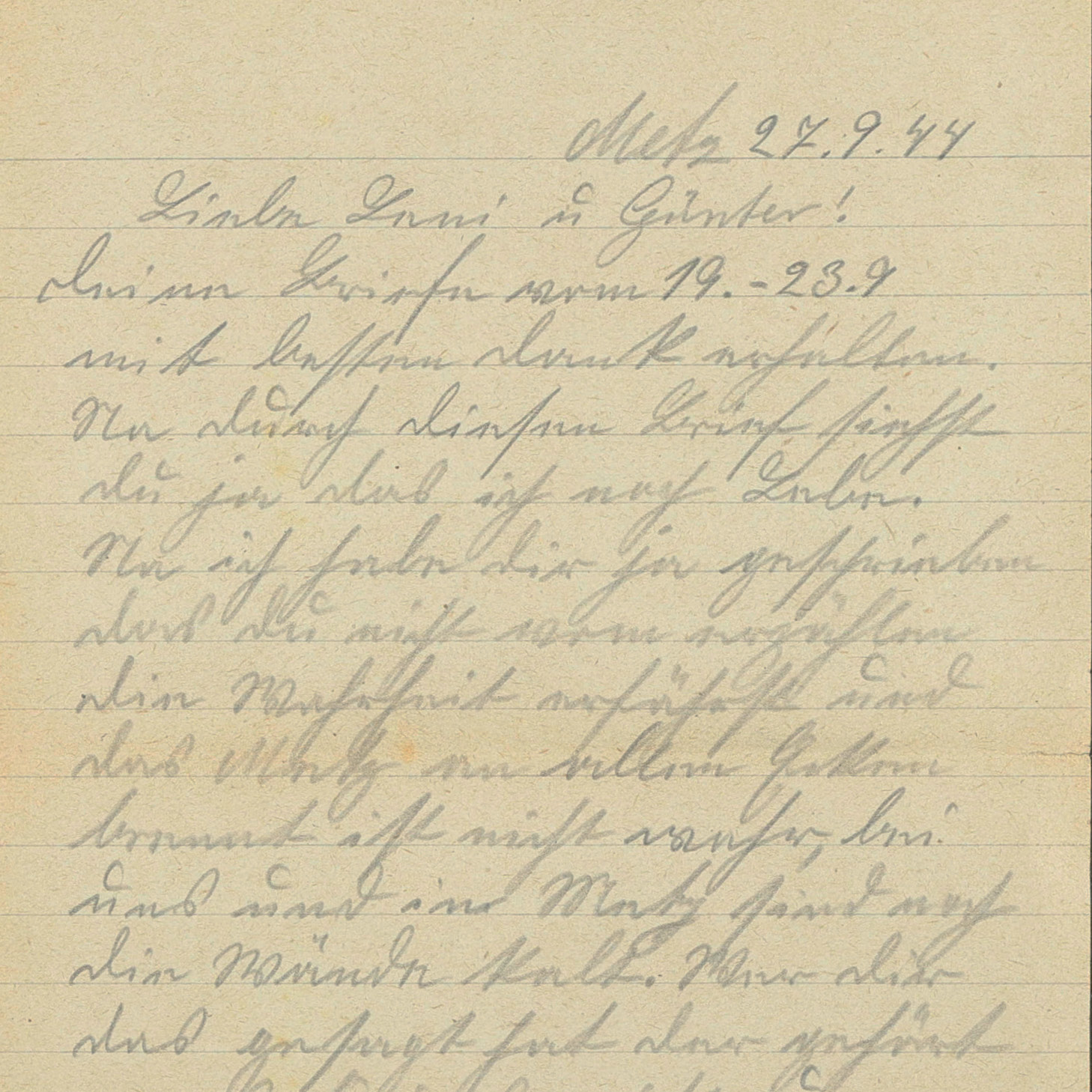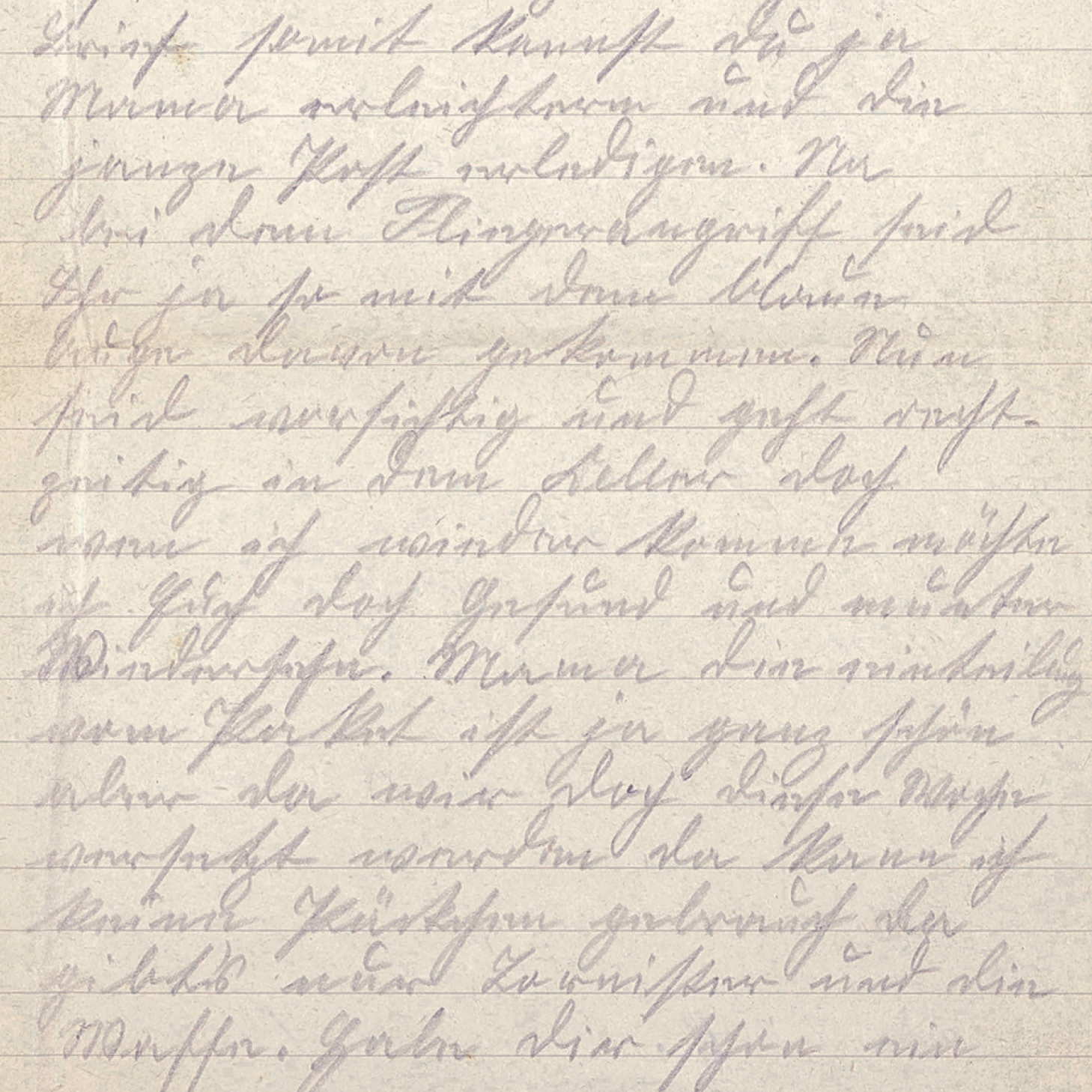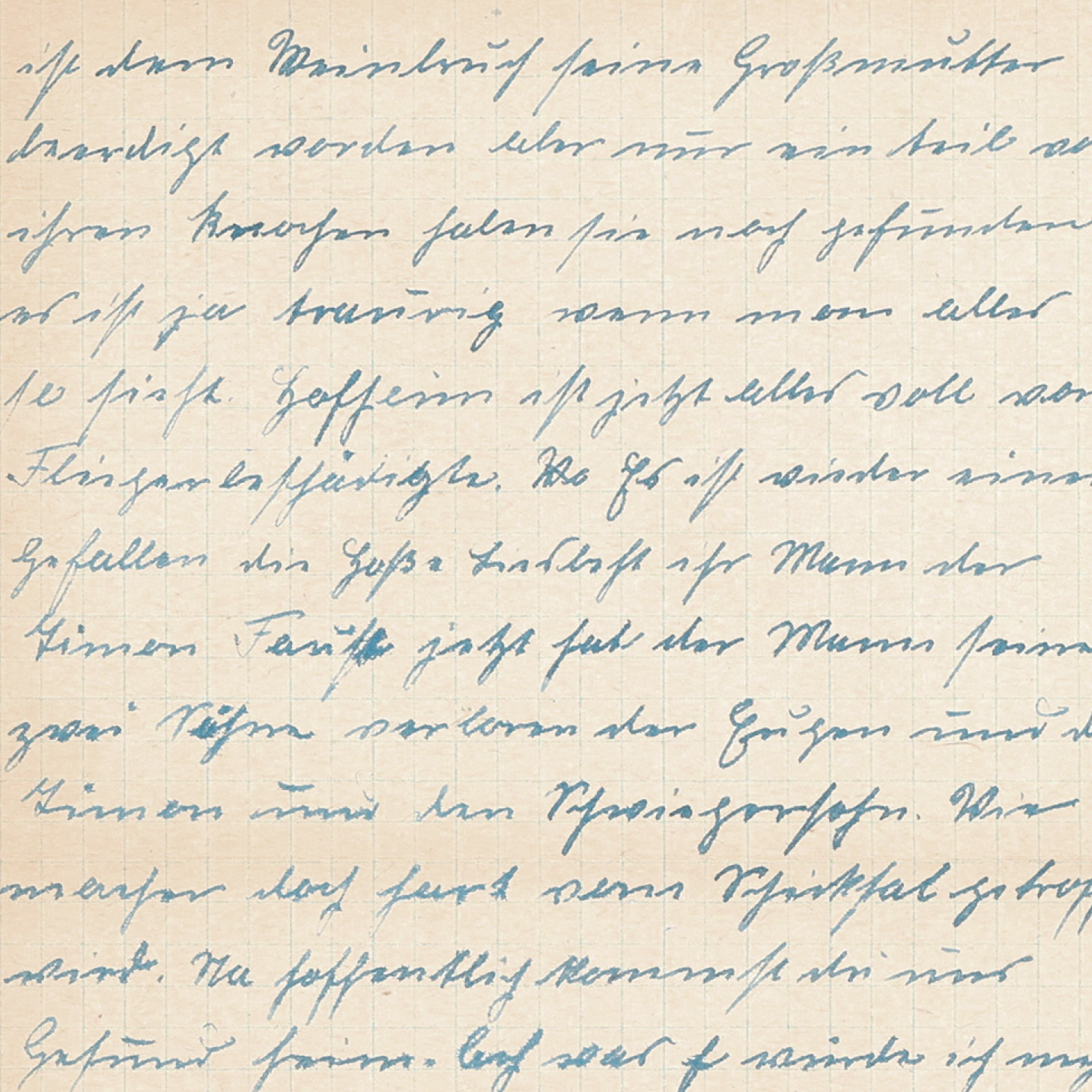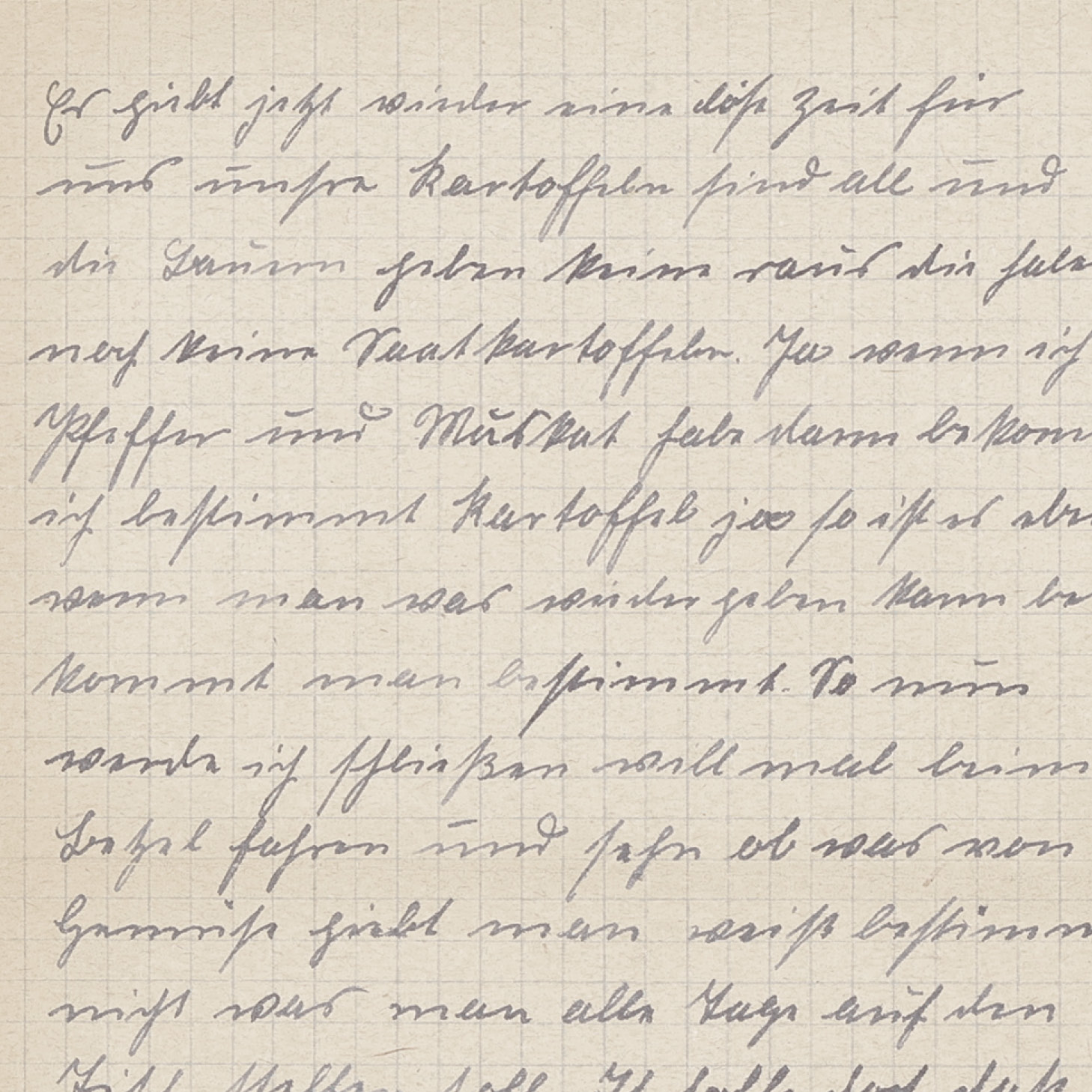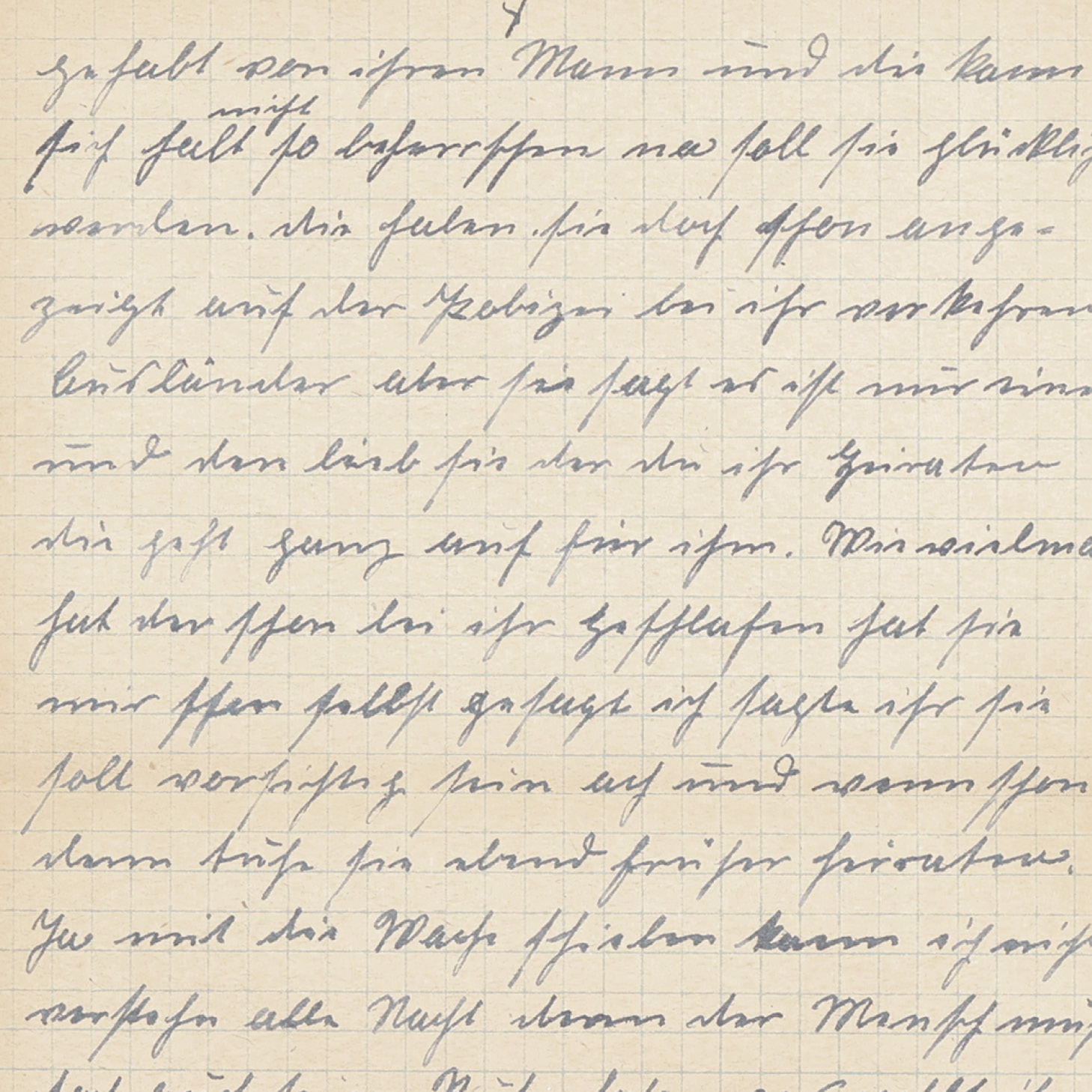"Love greetings from afar - the correspondence between Willy and Helene Powils during the Second World War"
On March 6, 2024, Ingrid Powils handed over a collection of documents and objects to the Hofheim town archive. The photos and field post letters of the soldier Willy Powils contained therein document the everyday life of his family during the Second World War in Hofheim.
The correspondence between Willy Powils, a soldier, and his wife Helene and son Günter tells of everyday life in wartime, of worries, hope and solidarity - a very personal insight into a dark chapter of history.
The town archive not only contains official documents, but also many personal testimonies from the lives of people in Hofheim - from everyday life over generations to special fates. Günter Powils' carefully processed estate can also be viewed there under the signature D1.3.
For decades, Willy Powils' field post letters were kept in the traditional way: neatly stacked in their original envelopes, carefully tied up with a simple string.
Together with the parcel, we received a photo of Willy Powils in uniform as well as personal items: his cap and a small bag.
The city archive has carefully processed the field post letters: The letters were individually packed, sorted chronologically and partially transcribed - i.e. transferred into legible writing. Thus professionally secured, the letters are preserved as a testimony to their time.
A new chapter begins for Willy on December 20, 1943: he is drafted and writes his first field post letters from his trip to France.
In the days that followed, he wrote from Diedenhofen, Metz, Paris and finally Nantes, where he wrote his last letter on December 26, 1943. In his letters, Willy talks about comrades, long train journeys, little sleep and constant moving. He writes about how he spent Christmas at the train station in Metz and that he received a parcel from a cheerful Rhinelander woman containing writing paper, a soldier's songbook, 10 cigarettes and cookies. Along the way, he tries to ease the family's worries at home.
Before the field post letters went back and forth between the front and home, the story of Helene and Willy Powils began in a very classic way: with a posting in the newspaper.
On January 26, 1929, the couple said yes to each other in Hofheim - and thus laid the foundation for their life together far from their original homeland.
The family's estate contains moving evidence of this new beginning:
- The original banns from the Hofheim newspaper from 1929
- The family register with the marriage certificate
- And a portrait of the couple, taken after the war
"In Metz, we get dressed again. Everything new. Here I have an old cap, trousers and skirt, the coat with a silk lining. (...] Food is good. Bread in abundance. Can eat as much as we want."
"Dear Mom and Günter!
Well, how did you spend Christmas, hopefully well? I spent it in Metz at the station. (...] We (...) were at the station from 6 p.m. to 2 a.m. and we celebrated Christmas in the soldiers' home. Packages were distributed. I got one too, but don't ask, it was the best from my three comrades and the travel companion. (...) But don't be angry, I haven't opened your Christmas parcel yet. Greetings and kisses, your dad"
Willy wrote to his wife Helene almost every day - especially in the first few months of the year. He reports on constant changes of location towards the French coast, on military training, which, as he writes, is "no walk in the park" - in the field with 40 pounds on his back. From May to October 1944, Willy was permanently stationed in Metz, where he developed a certain routine - he preferred going to the movies to going to the pub, as it was cheaper.
His comrades - some old acquaintances from home, some new faces - come to life in the letters, as does his longing for his family and Hofheim. Willy repeatedly tried to apply for leave from the front or to organize a visit from Helene to him in Metz, often without success. Instead, he writes about air raid alerts, fear, sleepless nights and the growing pressure on the German troops. Despite everything, he clings to his belief in a "final victory" for a long time and tries to reassure Helene and his son Günter with comforting words.
On a small piece of paper, Willy describes his daily routine during training in detail to his wife Helene: "6 a.m. wake-up call,
7-8 a.m. lessons on weapons and terrain, we're back at 12 ½ p.m., then we receive food, clean clothes and shoes, line up at 3 p.m., then the same maneuver in the barracks yard until 5 p.m., from 5 p.m. to 6 p.m. weapons cleaning, then receive food, clean clothes and shoes and so we become unemployed, 10 p.m. to bed."
Willy is worried about Helene and misses her:
"I can't help you, as much as I'd like to do the work for you. [...] Yes, you have to be a bit careful now so that you don't get crushed, but that can't happen, you're in Hofheim and I'm in Metz. Now ask me how I can crush you when we don't see each other."
The situation in France comes to a head:
"Well, you can see from these letters that I'm still alive. Well, I wrote to you that you don't learn the truth from telling it and that Metz is burning at every corner is not true. All the walls are still cold here and in Metz. Whoever told you that should be court-martialed just so that the person knows that we're at war and [they] can't spread false rumors.
While Willy fights at the front, Helene Powils keeps her small family's life going in Hofheim. The letters from 1944 show how she had to manage the household, work and the upbringing of her son Günter alone - accompanied by air raids, worries and hardship.
Although only a few of her letters have survived, we learn a lot about Helene's everyday life from Willy's replies: she works in the capsule factory and Willy warns her not to let herself be exploited there. He repeatedly worries about her health. At the same time, Helene is responsible for 13-year-old Günter, who is a frequent topic in the letters. Willy gives parenting tips and often admonishes Günter to be good and support his mother. In January 1944, he wrote: "Well, how is Günter doing? If not, tighten the reins or he'll outgrow you. If he does, then you alone are to blame."
Helene, in turn, reports on the tense situation in Hofheim and Frankfurt. Through her, we learn a lot about everyday life in Hofheim and about the fates of well-known Hofheim families. Among other things, she tells us that in April 1944, 2,000 people with airplane injuries had already been taken in "in our small town".
"Well, you got off lightly during the air raid. Now be sensible and go to the cellar in good time. When I come back, I want to see you safe and sound."
"His grandmother was buried today, but they only found part of her bones. It's sad when you see everything like that. Hofheim is now full of air raid victims. Another one has fallen. The Hoß Lisbeth, her husband, Timon Faust. Now the man has lost his two sons - Eugen and Timon and his son-in-law. How some people are hit hard by fate. Well, I hope you come home safe and sound. I would be so happy if you came home. But that won't happen."
"So much has been burned. There's no more mail in Frankfurt. Just rubble [...] It's a bad time for us again. Our potatoes are all gone and the farmers aren't giving any out. They haven't got any seed potatoes yet. Yes, if I have pepper and nutmeg, then I'm sure to get potatoes. Yes, that's the way it is. If you can give something back, you're sure to get it. So, now I'm going to close. I want to go to Betzel and see if there are any vegetables. You certainly don't know what to put on the table every day."
"Ms. W. hasn't had anything from her husband for two years and she just can't control herself that well. Well, let her be happy. They've already reported her to the police. There are foreigners at her place. But she says there's only one and she loves him and he wants to marry her. She's all for him. She's told me herself how many times he's slept with her. I told her to be careful. Oh, and if she does, then she'll get married sooner."


